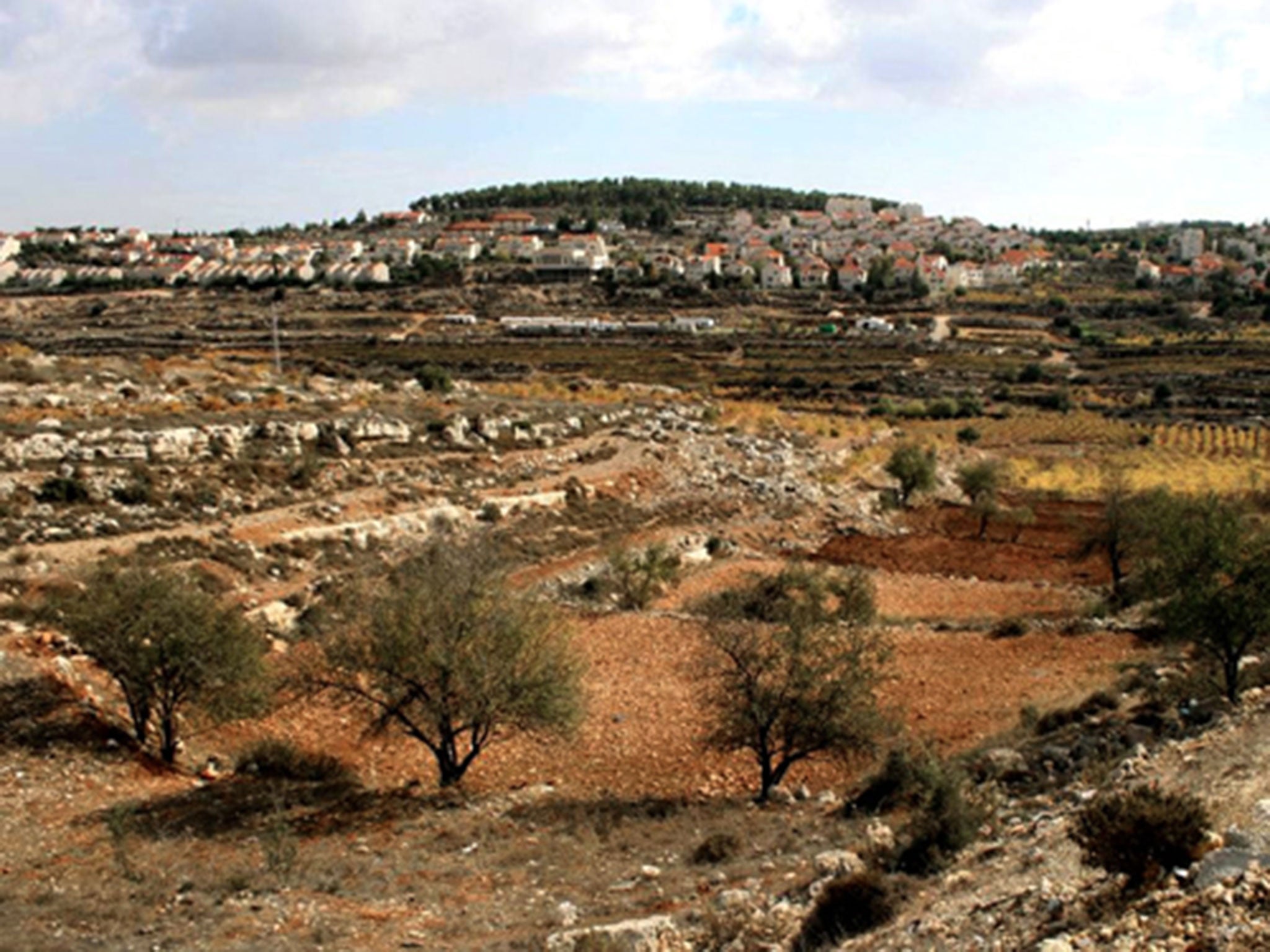Israel to appropriate 400 hectares in West Bank for ‘state use’
Israel announces 'largest land appropriation for 30 years' just days after the Gaza ceasefire agreed

Your support helps us to tell the story
From reproductive rights to climate change to Big Tech, The Independent is on the ground when the story is developing. Whether it's investigating the financials of Elon Musk's pro-Trump PAC or producing our latest documentary, 'The A Word', which shines a light on the American women fighting for reproductive rights, we know how important it is to parse out the facts from the messaging.
At such a critical moment in US history, we need reporters on the ground. Your donation allows us to keep sending journalists to speak to both sides of the story.
The Independent is trusted by Americans across the entire political spectrum. And unlike many other quality news outlets, we choose not to lock Americans out of our reporting and analysis with paywalls. We believe quality journalism should be available to everyone, paid for by those who can afford it.
Your support makes all the difference.Israel has announced plans to expropriate 400 hectares of land in the occupied West Bank in a move Palestinian officials claim will cause more friction after the Gaza conflict.
The announcement concerning land south of Bethlehem, inside what Israelis call the Etzion bloc of settlements, comes after Israel determined the land was not cultivated with enough intensity for the Palestinians to maintain their ownership rights.
Signs have already been posted on the land by military administrators saying “state land – no trespassing”. Dror Etkes, head of the Kerem Navot NGO which specialises in West Bank land issues, said: “There is enough territory for a very big settlement with thousands of units.”
The notice published by the military gave no reason for the decision, but Israel Radio said the step was taken in response to the kidnapping and killing of three Jewish teenagers in the area in June.
The United States has criticised the annoucement and branded it counter-productive to peace efforts.
“We have long made clear our opposition to continued settlement activity,” a State Department official said. “This announcement, like every other settlement announcement Israel makes, planning step they approve and construction tender they issue is counterproductive to Israel’s stated goal of a negotiated two-state solution with the Palestinians.”
“We urge the government of Israel to reverse this decision,” the official said in Washington.
Peace Now, which opposes Israeli settlement activities in the West Bank, said the appropriation was meant to turn a site where 10 families now live adjacent to a Jewish seminary into a permanent settlement.
Danny Dayan, a settler leader, denied that rightful owners would be dispossessed, stressing that people with a claim can lodge an appeal within 45 days.
Other settler leaders praised the land declaration as an appropriate response to the murder of three Israeli teens. “The goal of the murderers of the three youths was to sow fear and disrupt our living routine and our answer is strengthening settlement and building,’’ Davidi Perl, head of the local settlements council, said.
In Israel’s view, building in the area would not constitute a new settlement because the site is officially designated a neighbourhood of an existing one, Alon Shvut.
Construction of a major settlement at the location, known as "Gevaot", has been mooted by Israel since 2000. Last year, the government invited bids for the building of 1,000 housing units at the site.
Peace Now said the land seizure was the largest announced by Israel in the West Bank since the 1980s. A local Palestinian mayor said Palestinians owned the tracts and harvested olive trees on them.
Israel has been long criticised by the international community for its settlement activities, which most countries regard as illegal under international law and a major obstacle to the creation of a viable Palestinian state in any future peace deal.
Nabil Abu Rdainah, a spokesman for Western-backed Palestinian President Mahmoud Abbas, called on Israel to cancel the appropriation. "This decision will lead to more instability. This will only inflame the situation after the war in Gaza," Abu Rdainah said.
Israeli Prime Minister Benjamin Netanyahu broke off peace talks with Abbas in April after the Palestinian leader reached a reconciliation deal with Hamas, the Islamist movement that dominates the Gaza Strip.
In a series of remarks after an open-ended ceasefire halted a seven-week-old Gaza war with Hamas on Tuesday, Netanyahu repeated his position that Abbas would have to sever his alliance with Hamas for a peace process with Israel to resume.
Israel has said construction at Gevaot would not constitute the establishment of a new settlement because the site is officially designated a neighbourhood of an existing one, Alon Shvut, several miles down the road.
Some 500,000 Israelis live among 2.4 million Palestinians in the West Bank and East Jerusalem, territory that the Jewish state captured in the 1967 Middle East war.